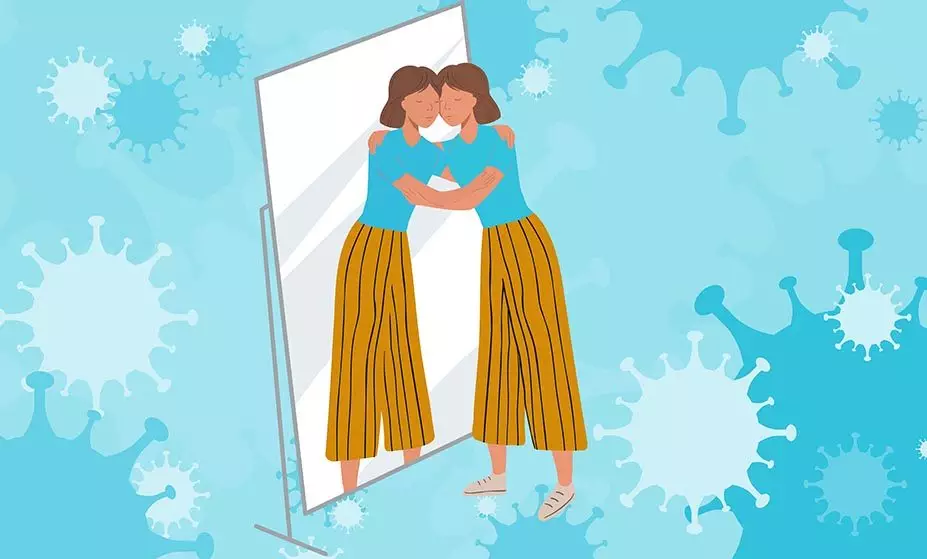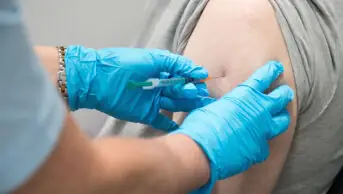
mclean/shutterstock.com
On Friday 13 March 2020, I felt unusually exhausted at work. I thought a meal, a good night’s sleep and a restful weekend would sort me out, but how wrong I was.
The following morning, I woke up with a tight chest and could not breathe very well, and for the entire weekend I was not able to get out of bed. I called in sick on Monday and saw my GP the following morning, who said: “The only thing it could be is COVID-19.” At that time, there were no tests outside hospitals, no social distancing and no isolation.
Four weeks of anxiety followed. I feared being in a flat on my own because I did not know how my state would change throughout the day and what condition I would wake up in the following morning. Even though friends brought food to me, I did not have the energy to cook or wash up afterwards.
After returning to work, I managed just three shifts before getting severe pains around my kidneys. I was given antibiotics, but tests showed no infection. This led to a five-week period off work, in which I was taken to live with my parents because I could no longer look after myself.
Examinations and investigations continued but all results came back normal. This frustrated my doctor as she had no idea how to treat me. I returned to work at the end of June 2020 for one shift. An hour before my second shift, I collapsed walking to the bathroom.
At this point, I contacted a private consultant to see if he could help. He suggested that I take three months off work to regain my strength through gradual increased activity.
To my horror, in July 2021 I contracted COVID-19 for a second time, even though I’d been double vaccinated since March 2021. This illness involved gastrointestinal and flu-like symptoms. It was not as bad as the first time, but it was still a horrific two weeks. I’m now back at work, with reduced hours. I’m much slower than I used to be and can’t fulfil my managerial duties. I still get back pains, find it hard to form sentences and tire quickly. Some days, I return from work and have to sleep for an hour before I can function at home.
I was referred by my GP to post-COVID services, and they have been fantastic in helping me understand my condition. I have been diagnosed with ‘breath pattern disorder following COVID-19’, a symptom of long-COVID, and am receiving respiratory physiotherapy for the condition.
However, I’m still trying to cope with my loss of energy. I feel only a shadow of my former self. It’s hard reminding myself I cannot do the activities I used to be able to do. Pre-COVID, I was regularly doing bootcamps and going for weekends away, but now I cannot walk for an hour before my lungs give up.
During the past 18 months, I have had to get to know and be kind to a new Pauline, who cannot do everything she would like to do. I have had to be stricter with myself and others about my abilities. Learning to say “no” has been a hard lesson, at work and home. I’m still learning about pacing and prioritising rest. I have taken up slower hobbies, such as paddleboarding and embroidery. However, I do push my activity some days and then regret it for the next three to four days.
On days that I’m frustrated with my illness, I have to look back and remember how far I have come. I am a long way from the days when I could only get out of bed to eat and was in discussions with my consultant about potentially never being able to work again.
There’s a lot more support now than there was when I first became ill in March 2020; it took the second illness to get me connected to the correct services. I have also learnt a great deal from literature and YouTube videos about chronic fatigue syndrome. However, long COVID is a complex and varied illness, and there isn’t a one-size-fits-all approach.
My final thought is: those with long COVID want to get better and fulfil all their roles at work and home. We are not being difficult when we say “no”, it is because we don’t have the energy or capacity to carry out the task.
My workplace has been very understanding, but not all are. I believe rest is vital to recovery, and employers need to support sufferers with convalescence, extended, phased returns to work and more flexible working hours. It is a very long road to recovery, but we will all get there in the end.
Pauline Jablonski is duty pharmacy manager at Tesco Pharmacy, Watford, Hertfordshire
READ MORE: Long COVID: the pharmacy staff picking up the pieces months after being infected


